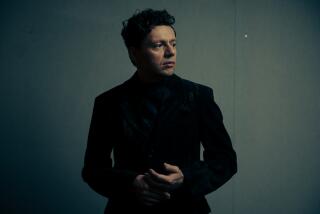‘A Hidden Life,’ Terrence Malick’s best film in years, is both a poem and a polemic
- Share via
A lyrical, forceful drama of spiritual and political resistance, “A Hidden Life,” now on home video, is Terrence Malick’s best film since “The Tree of Life.” It tells the fictionalized story of Franz Jägerstätter (August Diehl), an Austrian peasant farmer and devout Catholic who became a conscientious objector, refused to fight for Germany during World War II and was imprisoned and executed in 1943.
Jägerstätter’s courage would be worth memorializing in any year, but it feels particularly resonant now, at a moment when so many political and religious leaders, in the U.S. and elsewhere, have done their part to foster a global resurgence in white supremacy, right-wing nationalism and anti-immigrant violence. And Malick, a Christian philosopher-poet whose meanings can often be vague and elusive, seems to have been stung into an uncharacteristically blunt response, a forceful denunciation of the complicity of church and state. If “A Hidden Life” falls short of sublimity, the troubling, powerful lesson it has to impart — the rarity of real goodness in the face of collective evil — is not so easily diminished.
More to Read
Only good movies
Get the Indie Focus newsletter, Mark Olsen's weekly guide to the world of cinema.
You may occasionally receive promotional content from the Los Angeles Times.










